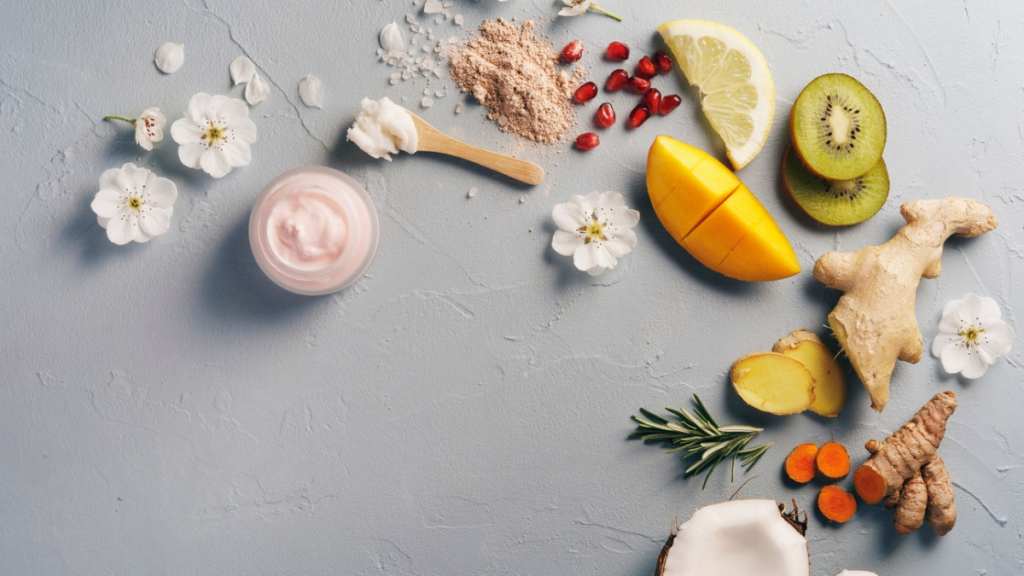Natural skin care isn’t new. Separating fact from fiction, however, can be tough. Social media is full of flashy hacks and miracle cures. Not all of them stand up to scrutiny. Science-backed skin care helps you cut through the noise and focus on what really works. Whether you’re dealing with dryness, inflammation, or breakouts, the right ingredients can make a noticeable difference.
Many natural remedies have centuries of anecdotal support, but modern research only verifies a small handful. Turning to science helps ensure you’re not just trying what sounds good, but what delivers results. This is especially helpful for people with sensitive skin or persistent conditions who may benefit from proven approaches.
Honey for Moisture and Acne Control
Raw honey is more than a sweet treat. It’s a skin care powerhouse. Research shows it has natural antibacterial and anti-inflammatory properties that calm acne-prone skin. It also acts as a humectant, pulling moisture into the skin without clogging pores. Smooth on a thin layer, wait 10 to 20 minutes, then rinse off with warm water. This method is simple, effective, and even edible.
Honey’s benefits go beyond hydration. Medical-grade manuka honey, in particular, has been studied for its wound-healing and antibacterial properties. These qualities make it helpful not only for acne but also for reducing minor inflammation and irritation.
Oatmeal as a Soothing Cleanser
Oats aren’t just for breakfast. When ground into a fine powder, colloidal oatmeal can ease irritated or sensitive skin. It contains compounds that calm redness and help support your skin’s protective barrier. To use it, blend plain oats and mix with warm water until it forms a creamy paste. Gently massage onto your face and rinse. This approach is soothing and easy to prepare.
Dermatologists commonly recommend colloidal oatmeal for conditions like eczema, and its ability to soothe itching and dryness has been well documented. If you’re looking for a non-irritating cleanser or mask, this kitchen staple is worth trying.
Avocados for Skin Nourishment
Avocados are rich in beneficial fats and vitamins that nourish more than just your body. They’re packed with antioxidants and nutrients like vitamins C and E, which help hydrate skin, support elasticity, and encourage a healthy glow. Whether you use them in a DIY face mask or include them in your meals, they offer dual benefits.
Avocados have been shown to support skin health by protecting against environmental stress and promoting natural elasticity, according to research on the link between diet and skin care. These healthy fats may improve your skin from the inside out while also offering external hydration when applied topically.
Green Tea for Redness and Inflammation
Green tea is more than a calming drink; it’s also useful in skin care. Thanks to its high levels of EGCG, a potent antioxidant, green tea can help reduce redness and irritation. Brew a strong cup, let it cool, then apply it to your skin with a cotton pad or as a mist. For an extra soothing touch, combine it with aloe vera.
Topical green tea has been studied for its anti-inflammatory and antimicrobial effects. Its ability to help with acne and sensitive skin has made it a favorite ingredient in many commercial products, and it’s easy to incorporate into your homemade treatments.
What to Avoid in DIY Skin Care
Not every ingredient from your kitchen belongs in your skin care routine. Lemon juice, baking soda, and undiluted essential oils may seem natural, but they can be too harsh. These substances can disrupt your skin’s pH balance or even cause burns. Always patch-test new ingredients and choose remedies supported by solid research, not internet trends.
Cinnamon, for example, is sometimes promoted for acne due to its antimicrobial properties, but it can be highly irritating when applied directly to the skin. Likewise, using apple cider vinegar undiluted can damage your skin barrier. Stick to gentle, evidence-supported options for best results.
Conclusion
DIY skin care doesn’t have to be trendy or complicated to be effective. A few proven ingredients and consistent care can lead to visible improvements. Start with basics like honey, oatmeal, and avocado. Let your skin show the results.
Understanding your skin and choosing evidence-based remedies puts you in control. Instead of chasing every viral hack, you can build a routine that’s simple, nourishing, and backed by science.

